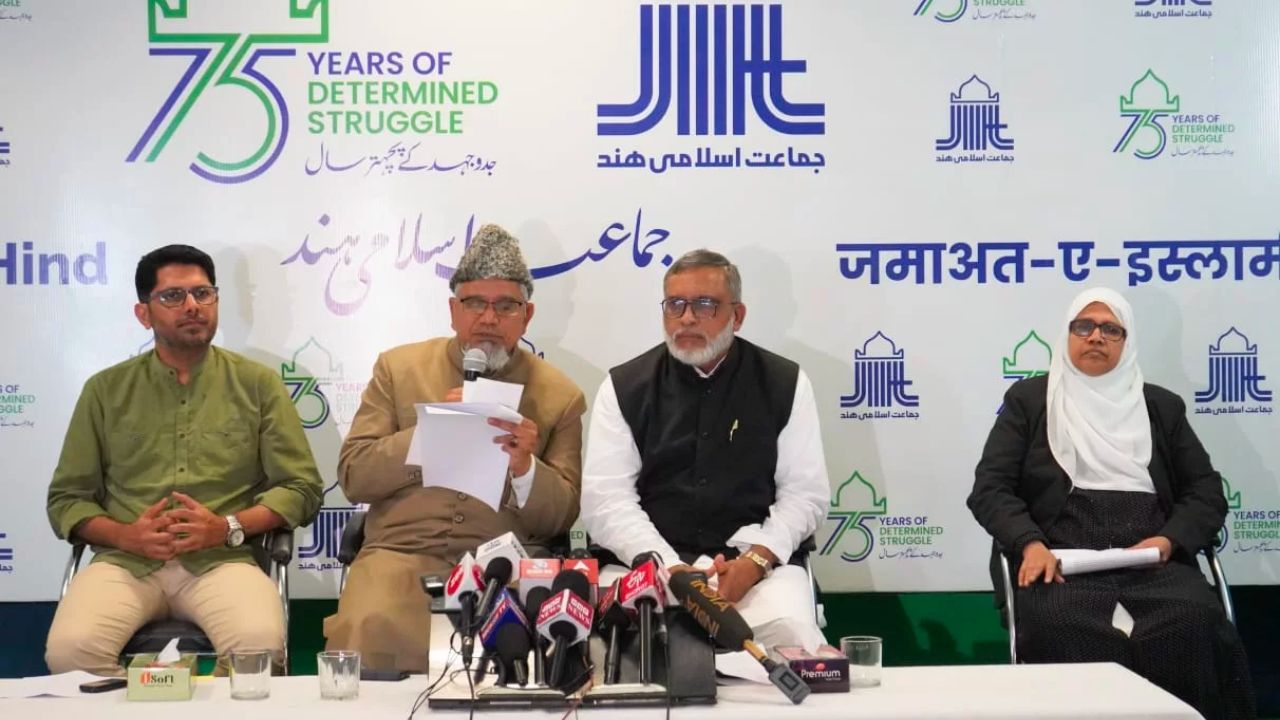The Jamaat-e-Islami Hind has called for sub-quota for Muslims and Other Backward Classes (OBCs) in the law for reserving a third of seats in the Lok Sabha and state assemblies for women.
The Women’s Reservation Bill, officially known as the “Nari Shakti Vandan Act-2023,” recently passed in the Indian Parliament, will come into effect after the next Census and subsequent delimitation in 2029. Jamaat-e-Islami Hind believes that the law’s omission of Muslim women and OBC women fails to address the broader issue of social inequality in India.
In their statement, the organization referenced various reports and studies, including the Justice Sachar Committee report (2006), the Post-Sachar Evaluation Committee Report (2014), and others, all of which highlight the socio-economic disparities faced by Indian Muslims, particularly women. Jamaat-e-Islami Hind pointed out that the political representation of Muslims in Parliament and state legislatures has been declining, which is not proportionate to their population size.
The organization argues that affirmative action through reservation is one way to address these inequalities and ensure equitable representation for all groups and classes. Jamaat-e-Islami Hind called on policymakers to reconsider the exclusion of Muslim women and OBC women from the Women’s Reservation Bill, emphasizing the need for an inclusive approach in line with the policy of “Sab ka Saath, Sab ka Vikas.”
BJP MP’s Offensive Language Sparks Controversy
Jamaat-e-Islami Hind has strongly condemned the use of offensive and derogatory language by BJP MP Ramesh Bidhuri against BSP MP Kunwar Danish Ali in the Lok Sabha. The organization characterized Bidhuri’s behavior as disgraceful and offensive, stating that it has lowered the standard and dignity of Parliament.
In their statement, Jamaat-e-Islami Hind criticized the silence of the Prime Minister and the lack of action against Bidhuri in Parliament. The organization views Bidhuri’s actions as a grave violation of a Parliamentarian’s dignity, amounting to a hate crime that targets a specific religious identity.
The organization expressed concern about the normalization of such actions and called for Bidhuri’s disqualification as an MP and his dismissal from the BJP, asserting that anything less would reflect poorly on Indian democracy.
Concerns Over Mob Lynching and Sexual Violence
Jamaat-e-Islami Hind has expressed deep concern over the rising incidents of mob lynching targeting Muslims and cases of sexual violence against women in India. The organization highlighted recent instances of mob violence, including the brutal lynching of a Muslim youth in Delhi and an attack on another Muslim youth in Jaipur.
Jamaat-e-Islami Hind believes that these incidents of mob lynching are fueled by communal divisions and hatred being spread in the country. They emphasize the need to address this issue comprehensively to protect the democratic fabric of the nation.
Additionally, the organization expressed grave concern over the widespread cases of sexual violence against women, citing statistics that show a high rate of rape cases in the country. Jamaat-e-Islami Hind called for both stringent laws and moral reform within society to combat sexual exploitation effectively.
Bihar Caste Census Welcomed
Jamaat-e-Islami Hind welcomed the Bihar Caste Census Population Report and called for a national-level caste census to gather updated data on marginalized and deprived sections of society. The organization stressed that accurate data is essential for designing effective policies and welfare programs.
The results of the Bihar Caste Survey revealed disproportionate population sizes compared to current reservations offered. Jamaat-e-Islami Hind advocated for benefits and reservations to be aligned with the population size of various social classes.
Raids on Journalists’ Residences Condemned
Jamaat-e-Islami Hind strongly condemned the early morning raids conducted by the Delhi Police at the residences of several journalists, comedians, writers, and commentators in connection with the funding of the news portal “Newsclick.” The organization criticized the government’s use of intimidation tactics against critical voices, describing it as an attack on freedom of expression and a threat to democracy.
The journalists targeted in the raids included Abhisar Sharma, Bhasha Singh, Urmilesh, Prabir Purkayastha, Githa Hariharan, Aunindyo Chakravarty, historian Sohail Hashmi, and satirist Sanjay Rajaura. Jamaat-e-Islami Hind called on justice-loving individuals to condemn these actions and stand in solidarity with the journalists.












